Proposed bid by percentage
Discussing in groups about the draft Law amending and supplementing a number of articles of the Law on Property Auction, National Assembly Deputy Nguyen Van Canh (Binh Dinh delegation) said that in the draft Law amending and supplementing a number of articles of the Law on Property Auction, the starting price is quite low.
“For example, regarding the auction of phone numbers, the starting price of only about 262,000 VND is too low and an odd number,” Mr. Canh commented.
In reality, there are some assets with low starting prices, but the winning prices are several thousand times higher, so delegate Nguyen Van Canh proposed to adjust the prices more flexibly. He also suggested adding a percentage price (%) in addition to the maximum, minimum, and fixed prices in the bill.

Scene of the group discussion session on the afternoon of November 8.
“For example, when auctioning a phone number, the starting price is 262,000 VND, but when the auction reaches 1 million, the next price should be 5% of 1 million; when it reaches 100 million, the next price should be 5% of 100 million. Thus, the auction price will be appropriate,” delegate Nguyen Van Canh gave an example.
Mr. Canh said that in fact, during the auction of car license plates, many plates were paid very high prices.
“Many license plates are auctioned for billions, but the next person only needs to pay 5 million more to win. That is unreasonable. When it is already at 1 billion, the next person needs to pay about 50 million more, that is reasonable,” Mr. Canh stated his opinion, saying, “when people are willing to spend billions, they do not quibble over a few million.”
In addition, delegate Nguyen Van Canh commented on the regulation of canceling auction results. Accordingly, if the auctioneer can prove that they have force majeure factors leading to the cancellation of the auction such as loss of property, flood, accident, it can be accepted and not be handled, otherwise, that person should be banned from auctioning the property for a period of time.
Avoid bidding and then forfeiting the deposit
Regarding the consideration of supplementing regulations on handling violations against auction participants, auction winners, individuals and related organizations in Article 70 of the Law on Property Auction who abandon their deposits, delegate Nguyen Thi Yen - Head of the National Assembly Delegation of Ba Ria-Vung Tau said that in practice, recently, there have been cases where auction winners abandoned their deposits and did not pay to receive the auctioned property, especially for properties of great value, such as license plates and real estate.
Delegate Yen cited the most recent example in the license plate auction on September 15 of the Vietnam Joint Stock Auction Company, an individual in Ho Chi Minh City won the auction for license plate 51K-888.88 for over 32 billion but did not pay the auction winning price, losing the deposit of 40 million.
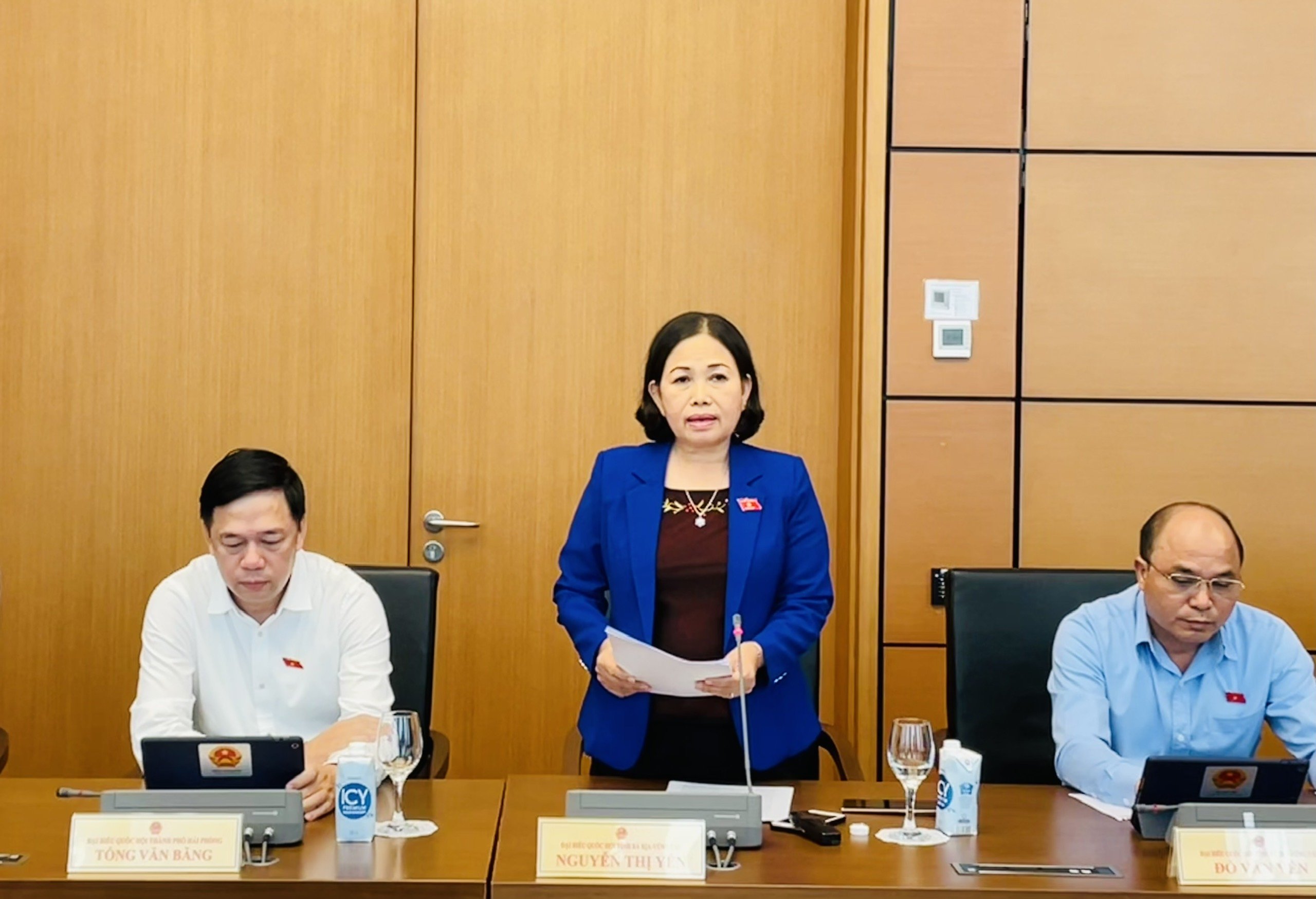
National Assembly Delegate Nguyen Thi Yen speaks during the discussion.
Or the incident where Ngoi Sao Viet Real Estate Company (a unit of Tan Hoang Minh Group) directly participated in the auction and had an official document requesting to cancel the deposit for the purchase and sale of land use rights lot number 3-12 in Thu Thiem New Urban Area (Thu Duc City) and forfeit the deposit of nearly 600 billion VND.
The current legal status, according to the provisions of the Law on Property Auction, the auctioneer has the right to cancel the deposit and there is currently no sanction on this issue. The law only stipulates that the person who wins the auction but does not pay the money will lose the deposit according to Article 19 of Decree 39 of 2023 of the Government.
Therefore, to overcome this situation, the delegate suggested that the Drafting Committee consider adding a regulation that when assets managed by the State are auctioned, deposits cannot be abandoned. If someone abandons their deposit, it is necessary to supplement and adjust the sanctions for this act of abandoning their deposit.
For example, a fine of several times more than the deposit of 30% of the auctioned property value can be imposed to avoid a successful auction and then forfeiting the deposit.
Regarding the additional provisions on the head of the Property Auction Service Center, delegate Nguyen Thi Yen suggested that the Drafting Committee consider adding a provision regulating the Director of the Property Auction Service Center in the direction of being an auctioneer or a person who has worked and held equivalent judicial positions.
The field of asset auction is one of the sensitive fields, prone to negativity. "Therefore, the addition of the above regulation aims to create favorable conditions for state management at the local level, facilitate job transfers, and effectively implement anti-corruption work in the industry," said Ms. Yen.
Regulations are needed to prevent "night auctioneers"
National Assembly Delegate Lo Thi Luyen (Dien Bien delegation) basically agreed to amend the law, because the new Law on Property Auction has been implemented for about 5 years but has so far encountered many shortcomings, difficulties, and problems.
In the Government's proposal to amend the law, three reasons for the amendment were also clearly stated. The second reason clearly stated the fact that many negative aspects arise in property auction activities, violating professional principles...
According to delegate Luyen, in this revised draft, the drafting and review committee is requested to add regulations on the behavior of property auction participants and auctioneers.
In reality, there are cases where auction agencies and bidders share information with each other. It is very difficult to detect and handle this.
For example, when auctioning property A and there are 10 participants, the real bidder must make a secret agreement with the remaining people.
“For example, the real value of the property could be over 22 billion, but I only paid 21 billion and negotiated so that others would not pay more than this amount. The remaining 1 billion, I used to pay the auction participants.
If there is no agreement, many people can break it by paying a very high price and then give up, not accepting it. And the second or third time, this person can still participate in the auction again," Ms. Luyen gave an example and said that this reality has happened in Ho Chi Minh City and Dien Bien when auctioning some small-scale public assets. Therefore, delegate Luyen said that there must be regulations to limit this "backdoor" behavior .
Source






![[Photo] The moment Harry Kane lifted the Bundesliga trophy for the first time](https://vphoto.vietnam.vn/thumb/1200x675/vietnam/resource/IMAGE/2025/5/11/68e4a433c079457b9e84dd4b9fa694fe)
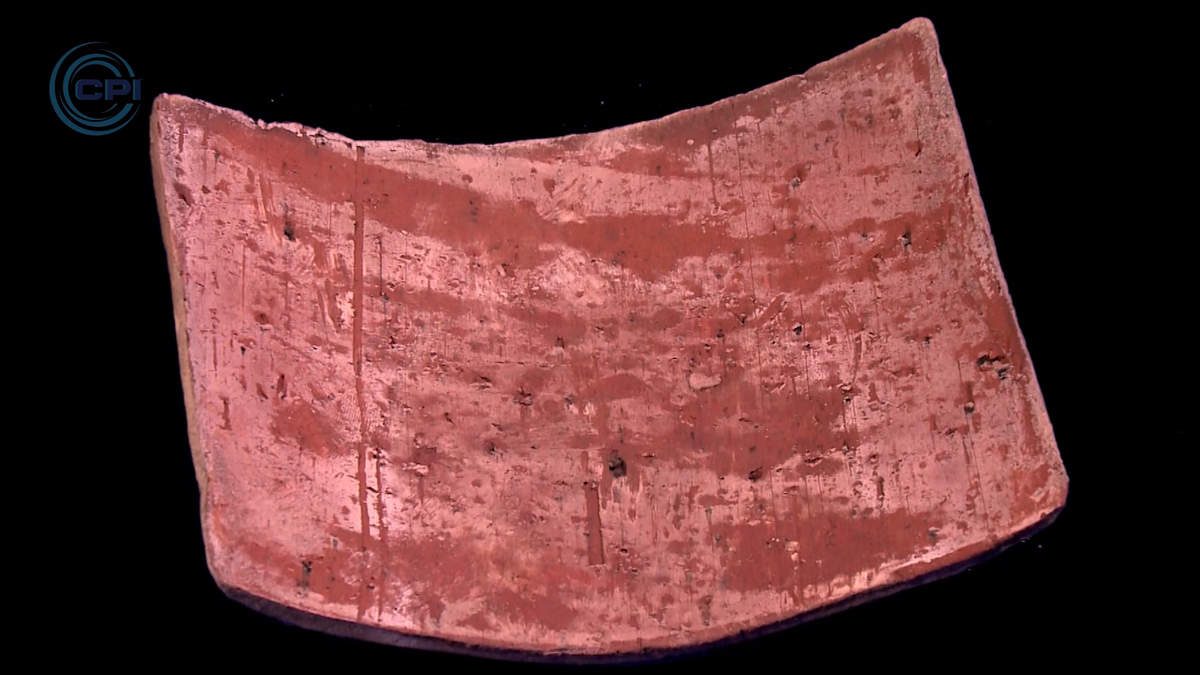
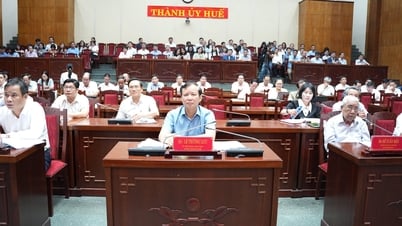

![[Update] - Thanh Hoa: 55 thousand delegates attended the conference to disseminate and implement the Resolution of the 11th Conference of the 13th Party Central Committee](https://vphoto.vietnam.vn/thumb/402x226/vietnam/resource/IMAGE/2025/4/16/f1c6083279f5439c9412180dda016c15)


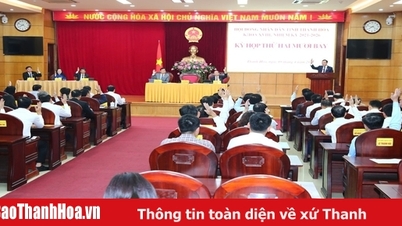























































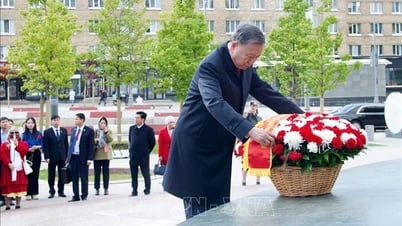


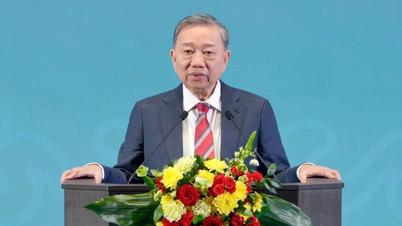















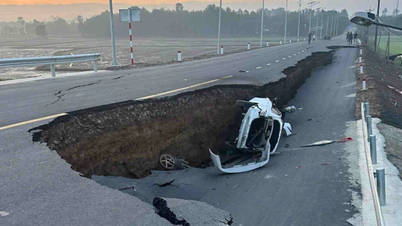

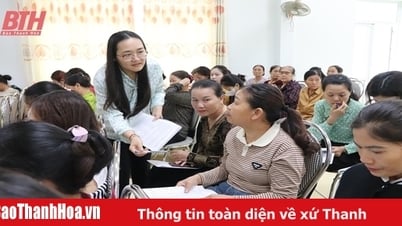
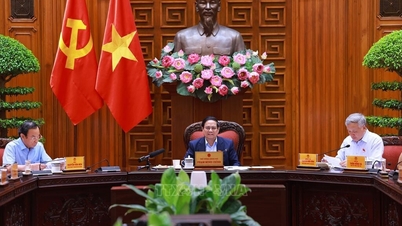












Comment (0)